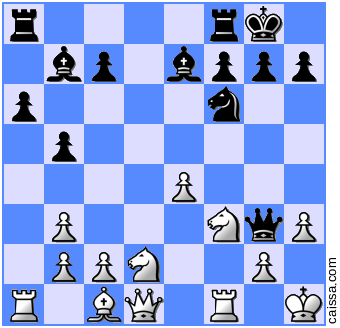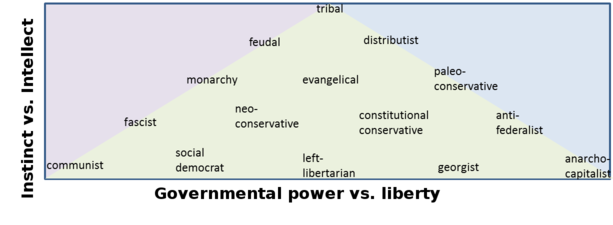It has become clear in modern welfare societies that redistribution of wealth is inadequate as a guarantor of social well-being. It is possible for people to get through years, decades or an entire lifetime without working a job, subsisting through various interactions with the public welfare system, but only a very individualistic and self-satisfied sort of person is able to achieve happiness in such a life. Indeed, judging from personal accounts, prolonged interaction with the system practically guarantees depression and feelings of worthlessness. Escapism into drunkedness or drugs often follows, and is considered a pity.
Sometimes, however, people escape into an intense appreciation of a hobby or subculture, and that is not considered such a pity. Indeed, this is a point often raised in the context of universal income (or negative income tax, or similar schemes), that when subsistence no longer requires conforming to the demands of the system (pretend to apply for undesirable jobs, ineffective training, be diagnosed as having a mental illness so you can be excused from obligations), people would be more free to pursue such self-actualising goals. “Free of what?” is an interesting question. Time constraints? Their own negative emotions like guilt? The mental distress of having to lie and self-justify? But I’m not going to address that now.
Ronald Dworkin published a pair of essays called “What is Equality?” in the 1981, the first addressing “equality of welfare” and the second “equality of resources”. (Years later he continued the series with “the place of liberty”.) They constitute a rather good exploration of what a complicated question equality really is. From the first one:
Suppose, for example, that a man of some wealth has several children, one of whom is blind, another a playboy with expensive tastes, a third a prospective politician with expensive ambitions, another a poet with humble needs, another a sculptor who works in expensive material, and so forth. How shall he draw his will? If he takes equality of welfare as his goal, then he will take these differences among his children into account, so that he will not leave them equal shares.
[…]
When the question arises how wealth should be distributed among children, for example, those who are seriously physically or mentally handicapped do seem to have, in all fairness, a claim to more than others. The ideal of equality of welfare may seem a plausible explanation of why this is so. Because they are handicapped, the blind need more resources to achieve equal welfare. But the same domestic example also provides at least an initially troublesome problem for that ideal. For most people would resist the conclusion that those who have expensive tastes are, for that reason, entitled to a larger share than others. Someone with champagne tastes (as we might describe his condition) also needs more resources to achieve welfare equal to those who prefer beer. But it does not seem fair that he should have more resources on that account. The case of the prospective politician, who needs a great deal of money to achieve his ambitions to do good, or the ambitious sculptor, who needs more expensive materials than the poet, perhaps falls in between. Their case for a larger share of their parent’s resources seems stronger than the case of the child with expensive tastes, but weaker than the case of the child who is blind.
Dworkin introduces several theories of equality, one of which is a family called “success theories of equality”:
These suppose that a person’s welfare is a matter of his success in fulfilling his preferences, goals, and ambitions, and so equality of success, as a conception of equality of welfare, recommends distribution and transfer of resources until no further transfer can decrease the extent to which people differ in such success.
[…after talking about more theories of equality, which] raise the question of whether equality in that conception is reached when people are in fact equal in welfare so conceived, or rather when they would be equal if they were fully informed of the relevant facts. Does someone attain a given level of success, for purposes of equality of success, when he believes that his preferences have been fulfilled to a given degree, or rather when he would believe that if he knew the facts?
That last part is very interesting to me. It cuts two ways: sometimes people rage against their lack of success, and I feel like telling them they expect too much, are unrealistic, that they really have had their preferences fulfilled rather well if only they could see it, all things considered (“look, you’re not smart or hard-working enough to be as good as the best, but you have no right to expect to be”). Other times people seem to achieve happiness through ignorance, misunderstanding either their relative success in their pursuit, or the relative importance of their pursuit.
But then it occurs to me that there is really not much difference between what I called ignorance about the relative importance of their pursuit and “escape” into hobbies or subcultures. Of course, there are very loaded words. In our postmodern world, there is no need to put down “marginal” pursuits; shared narratives about what is meaningful have broken down into ever smaller pieces, and there is no objective hierarchy of legitimacy among the narratives.
So ultimately, will our path towards equality take the form of producing a large enough number of subcultures, interests and hobbies that generate preference-satisfaction in the sense of the success theory of equality? It seems we have at least gone some way on that path, although I doubt it will amount to an actual paradise of social well-being (at least until people move on to living in simulated realities on computers). Subcultures, interests and hobbies we have always had with us, but only now in the kind of intense bubble way that truly create feelings of success.
As an aside, there have been islands of this type of thing before; Pythagoras’ pupils isolated themselves from outside value systems and made themselves the only possessors of truth and beauty, and many religious cults have followed the model, but that has only ever been possible for relatively small numbers of people. Mass religions have tried to produce feelings of success in other ways (“suffer in this earth, you will have a glorious reward in the next”), but they either never really worked or have stopped working in the present era.
The endgame of this development is hard to predict, but it seems to be rather unstable. Feelings of success create pride and an expectation of dignity and respect, but the atomization of society destroys solidarity on the national level (and solidarity on any other level doesn’t really exist). The harsh reality of producers vs. consumers will persist and become even sharper. Of course, much depends on the advance of technology. Many western countries already use some promilles of their GDP on foreign aid; perhaps one day that will be sufficient to support most of the population and their success-theory-of-equality bubbles.
That, of course, is on the big scale. It’s hard to see one’s own place in it clearly, but on the individual level, my advice is to neither try to escape nor to relentlessly play the status game, but to try to achieve some measure of inner peace, to have modest material needs and to develop sustainable and robust methods to satisfy them indefinitely. The only winning move is not to play?



